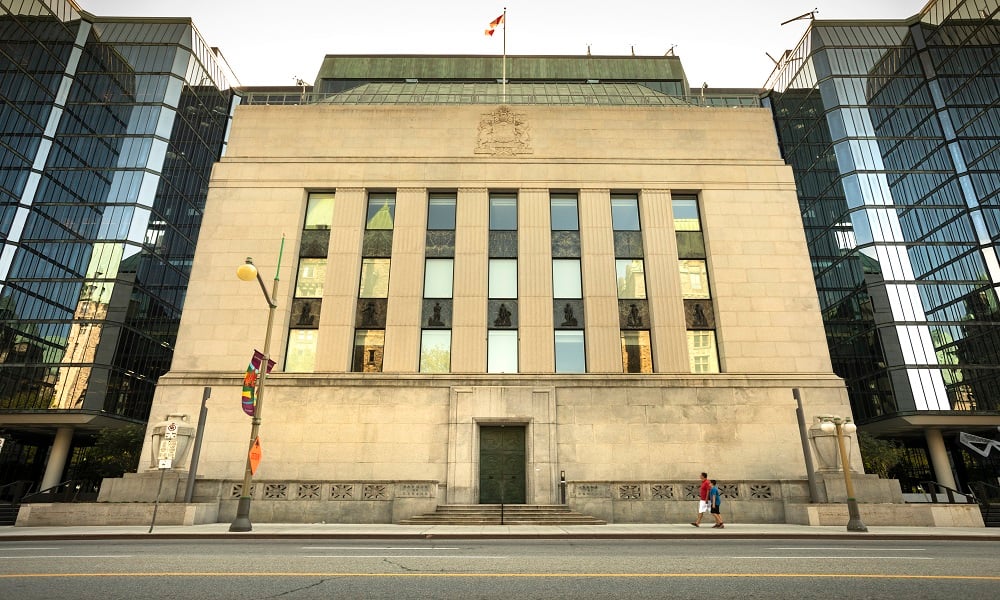Canada's central bank says it will support the economy through these difficult times

The governor of the Bank of Canada (BoC) had three key messages in his monetary policy speech Wednesday.
Following the bank’s confirmation that interest rates will remain at 0.25%, Tiff Macklem said that the current surge in COVID-19 infections is a “serious setback” to the Canadian economy, which is slowing and causing particular pain to high-contact activities.
But the governor highlighted the positive times ahead with the vaccination program underway both in Canada and elsewhere, improving the prospects for a “strong, sustained recovery” in the second half of 2021.
He reiterated previous statements that the BoC will continue to support Canadians through these difficult times.
Macklem said that the bank had seen “considerable momentum” towards the end of last year but noted that the rise in virus infections broke that positive movement.
The BoC now predicts that the economy will decline by 2.5% in the first quarter of 2021, following 5% growth in the previous quarter. However, Macklem noted that the Q1 decline could be deeper if the virus demands tougher containment measures.
Sharp bounceback
The governor’s generally optimistic speech returned again to the hope of “a sharp bounce back in economic activity” based on the vaccine roll-out.
If jabs are delivered as expected, the central bank expects rising consumption, job creation, investment, and exports.
The bank is expecting 4% growth for 2021 and 5% for 2022.
But Macklem warned that, even with a strong rebound, absorbing economic slack is likely to take until 2023.
On inflation, the governor said that the Consumer Price Index has risen to near the bank’s 1-3% target in recent range – the latest stats show 0.7% year-over-year in December, down from 1% for November.
The bank predicts 2% for a short time this year, as we move out of the effects of the sharp drop in gasoline prices at the start of the pandemic. However, inflation is then expected to dip again due to the excess supply in the economy. The near-2% figure will return sustainably by 2023.
Increased stimulus
Macklem concluded by reflecting the views of the BoC’s governing council that the current level of stimulus was appropriate, but that further measures will be taken if required.
“We also agreed that it is too early to consider slowing the pace of our purchases of Government of Canada bonds. However, if the economy and inflation play out broadly in line or stronger than we projected, then the amount of quantitative easing (QE) stimulus needed will diminish over time,” he said.



